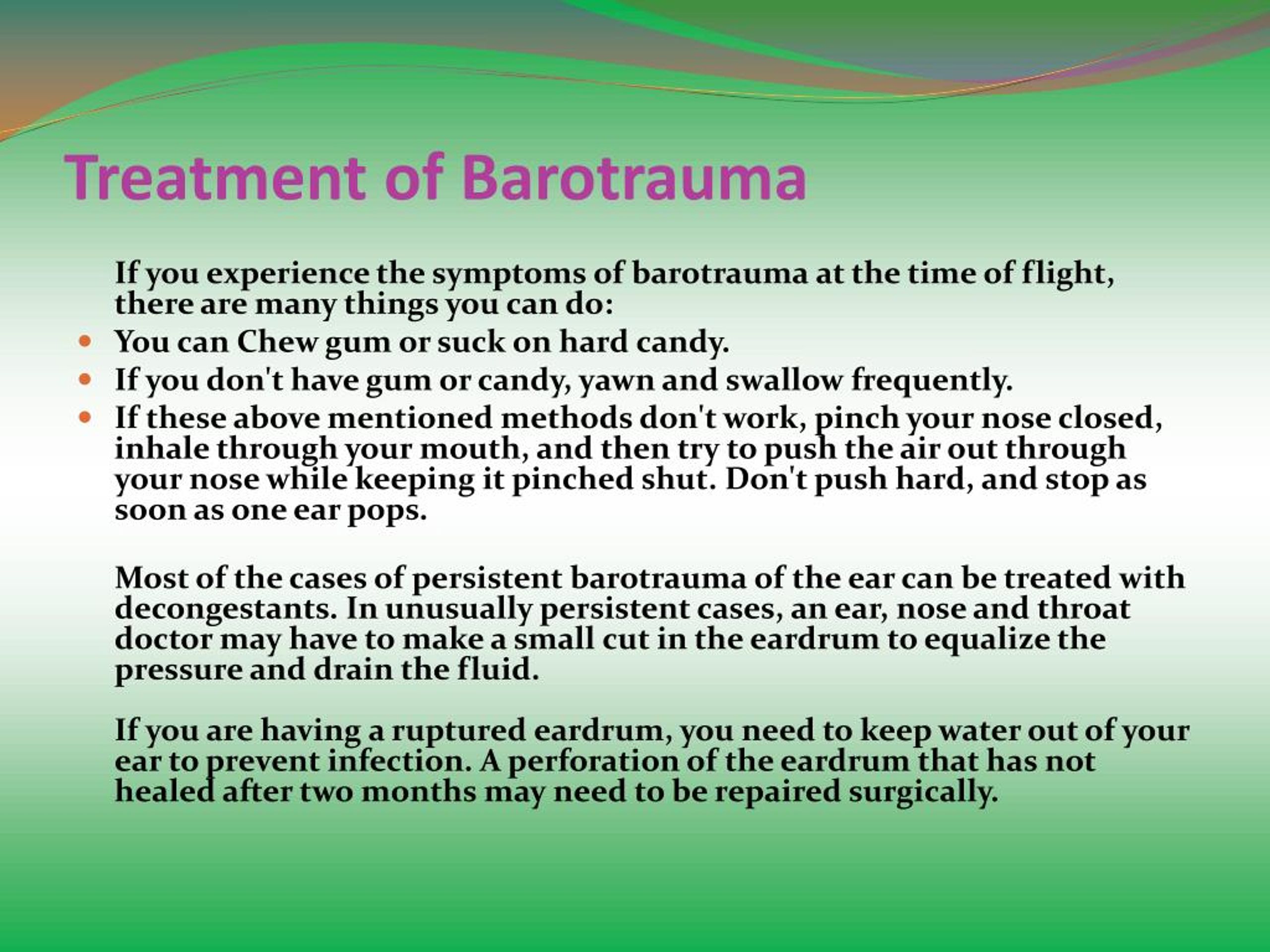
© Copyright Merative 2023 Information is for End User's use only and may not be sold, redistributed or otherwise used for commercial purposes. Talk to your doctor, nurse or pharmacist before following any medical regimen to see if it is safe and effective for you. It is not intended as medical advice for individual conditions or treatments. The above information is an educational aid only. You always have the right to refuse treatment. Discuss treatment options with your healthcare providers to decide what care you want to receive. Learn about your health condition and how it may be treated. You have the right to help plan your care. Your neck, shoulders, or chest swell, and your voice changes.You have odd eye movements, or you have trouble keeping your balance.You feel drowsy, there are changes in the way that you act, or you have trouble thinking clearly.You cough up blood, have trouble breathing, or have chest pain.
Treatment for pulmonary barotrauma skin#

This uses an electrical current placed on the skin near your ears. Your healthcare provider may also use transcutaneous electrical nerve stimulation (TENS) therapy. Biofeedback therapy uses patches of electric current to relax your face and neck muscles. Your healthcare provider may give you a device to put in your ears which decreases the ringing.

Tell the healthcare provider if you have any metal in or on your body.ĭo not fly or scuba dive until your symptoms are gone. Do not enter the MRI room with anything metal. Tell your healthcare provider if you have ever had an allergic reaction to contrast liquid. You may be given contrast liquid to help the pictures show up better. A CT uses x-rays and an MRI uses powerful magnets to take pictures of an area of your body. A CT or MRI scan may be used to look at your bones, lungs, stomach, intestines, or blood vessels.An x-ray may be used to check for broken bones, or fluid or air in your sinuses, abdomen, or other areas of your body.Ear tests may be done to check your hearing or check for damage to your ear.You may also need any of the following tests: You may be asked to chew, swallow, or yawn to release air from your ears. The provider will also ask if you take medicine or have other health conditions. Your healthcare provider will ask how and when your symptoms started. Bruising, red or purple spots on your skin, or a rash that itches.Nausea, gas, or not being able to have a bowel movement.Popping in your ears when you swallow, yawn, or chew.
Treatment for pulmonary barotrauma full#
Pain or a full feeling in your teeth, ears, face, chest, or abdomen.What are the signs and symptoms of barotrauma? Activities such as scuba diving or flying.It is also called ear, sinus, lung, or gut squeeze. It can also affect your lungs, stomach, or intestines. You may have an injury to your ears, sinuses, or teeth. Last updated on Jul 3, 2023.īarotrauma is an injury to your body caused by a pressure change.


 0 kommentar(er)
0 kommentar(er)
